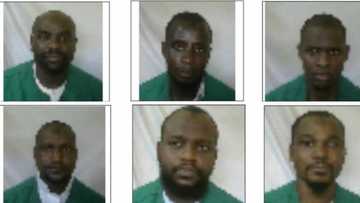Kuje Prison Attack: Spread of ISWAP, Ansaru, Other Terrorist Groups Not Surprising, Security Expert Says
- A security expert in Nigeria has said that the growing attacks on key places and soft targets by terrorists are not surprising
- Senator Iroegbu said that the implication of the attack at the Kuje prison facility is a red flag and a pointer that the Federal Capital Territory may be a city under siege
- According to the expert, there is a need for punitive measures to be meted out to security personnel and agencies that jeopardise the effort to end terrorists' activities in Nigeria
The show of audacity by terrorists in Nigeria through attacks on government facilities and soft targets does not seem to surprise security experts in the country, Legit.ng has learnt.
Addressing the attacks on the ill-fated Abuja -Kaduna bound train and the Kuje Custodial Facility on Tuesday, July 5, a security expert, Senator Iroegbu told Legit.ng that while such moves by terrorists are worrisome, analysts and observers are not surprised.
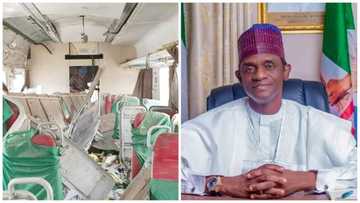
Read also
Kaduna train attack: Negotiator reveals 1 major thing governor did about captives from Yobe state
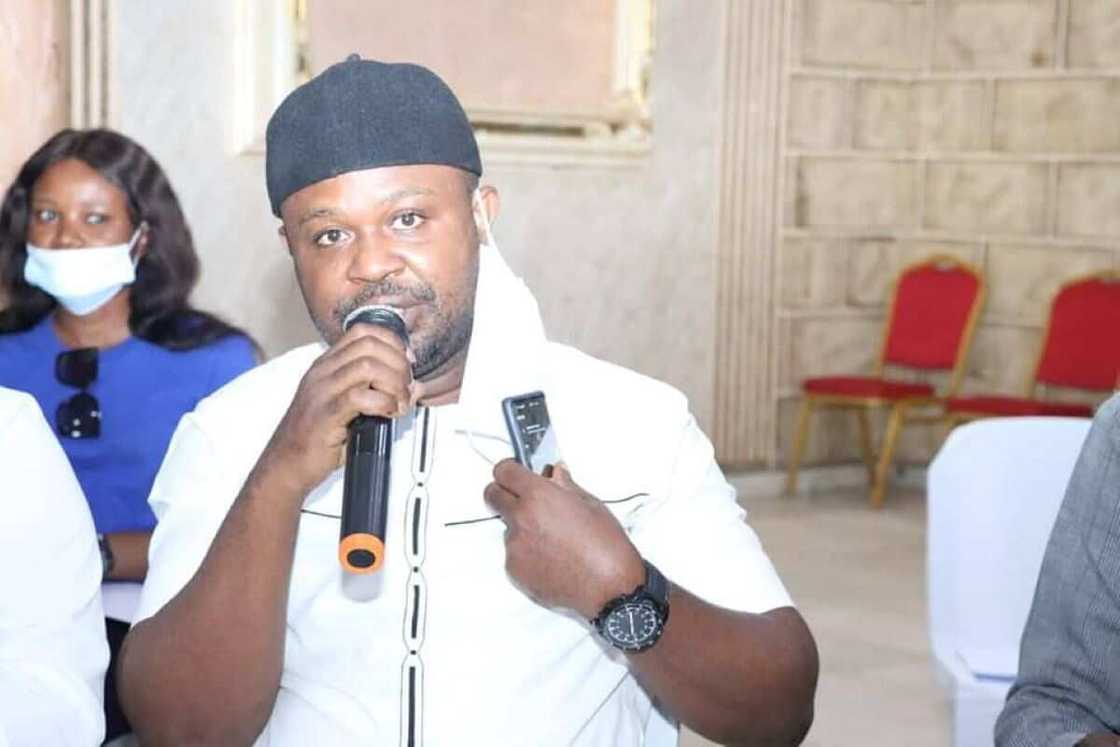
Source: Facebook
On March 28, a Kaduna-bound train with approximately 970 passengers was attacked by some terrorists in Katari, Kaduna state. The attack on the train led to the killing of at least eight people including, a youth leader of the All Progressives Congress, Amin Mahmoud; a young medical doctor, Chinelo Megafu; the secretary-general of the Trade Union Congress, Barrister Musa Lawal-Ozigi among others.
The terrorists also successfully abducted over 65 passengers out of which 11 captives were released in June including a businessman and the managing director of the Bank of Agriculture, Alwan Ali-Hassan, who was rumoured to have secured his freedom by paying N100 million ransom to the group.
PAY ATTENTION: Join Legit.ng Telegram channel! Never miss important updates!
Subsequently, on Saturday, July 9, - about 103 days after the attack on the train - a fresh set of seven captives including a Pakistani national was freed. This incident occurred barely four days after the same group of terrorists - the Islamic State in West Africa Province (ISWAP) - launched an attack on the Kuje Prison facility in the Federal Capital Territory freeing over 60 of their fighters.
Reacting to these developments, Iroegbu confirmed that the spread of terrorist activities especially to the northwest and north-central have been reported severally and could not have been missed by anyone following the trend.
Iroegbu said:
"I recall the former Chief of Army Staff (COAS), Lt-Gen. Tukur Butatai, alluding to this fact earlier on that some of the terrorist elements dislodged from the northeast have migrated southwards.
"This was also confirmed by the Defence Media Operations of the Nigerian Defence Headquarters when a Boko Haram Cell was busted in Nasarawa state."
Terrorists technically defeated?
Iroegbu added that with all the incidents recorded and the audacity exhibited by the terrorists, the question that begs for answers is, why there has been either a lacklustre response or none at all from the Nigerian authorities with devastating consequences.
He admitted that:
"The danger is that while the government lacked any strategy at all in it's response to the banditry in the northwest, it so much engaged in tackling the IPOB activities in the southeast and avowed defeat of terrorists in the northeast.
"The terrorists are creeping and spreading across the country unchecked."
"And that it's encircling FCT the nation's capital is a cause for concern because as it stands, there are established and active terrorist cells in Niger, Nasarawa, Kogi and Kaduna states, which are all bordering FCT."
How safe is the Federal Capital Terrority?
With all the incidents that have taken place in the Federal Capital Territory and its neighbouring states like Nasarawa, Niger and Kaduna, security expert fears that the recent prison break depicts the worst cases scenario.
Iroegbu submitted that the implication of the attack at the Kuje prison facility is a red flag and a pointer that the FCT which houses Nigeria's seat of power may be a city under siege.
His words:
"We all know the aftermath of the Owerri prison break that since then the state has never known peace. Will that be the case here?
"Another consequence of this is that it has thrown the city into a state of panic as no one knows when, where and how these terrorists could pop up and unleash mayhem, so it had made the Nation's capital less safe.
"Again, it could also affect our standing in the international community, as travel advisories may be issued against Nigerian cities, states and Nigerians travelling could be subjected to too much scrutiny and screening."
Nigeria continues to ignore warnings from US, international communities and the way forward
Further speaking, Iroegbu decried the continued neglect of early warnings from the United States of America and other members of the international communities on the activities of the terrorists and their spread.
He said various warnings by the US Africa Command (AFRICOM) that ISWAP is spreading their activities from the Sahel region to the South coast of West Africa should have been followed with action from the Nigerian government.
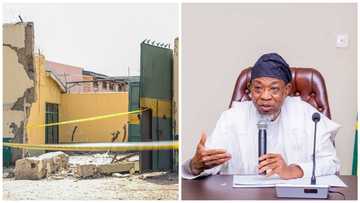
Read also
Kuje jailbreak: Buhari's minister drops another bombshell, says Prisons not designed to resist external attack
He added:
"To this end, there could be established terrorist cells/sleeper cells even beyond these two zones waiting to be activated.
Highlighting recommendations needed to tackle the insecurity bedevilling the nation, Iroegbu called for punishment for negligence among relevant security top brass and agencies.
His words:
"People should be made to take responsibility which could include outright sacking, demotion, trial and jailing.
"In addition, that policy of putting highly dangerous terrorist suspects in a medium-security prison when they should have been held in a maximum-security prison should be discontinued.
"In addition, the correctional centre's facilities should be expanded and upgraded. Again, the justice system should be improved and the number of awaiting trials should be reduced as not only are the centres overcrowded but over 70 per cent of inmates are on awaiting trials."
Kuje prison attack: Senator Ali Ndume says Nigeria is in trouble, gives reasons
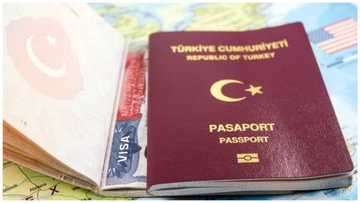
Read also
Kuje jailbreak: Bad news as Turkey removes Nigeria from list of countries eligible for Turkish E-Visa
Senator Ali Ndume had condemned the leadership of Nigeria for not taking responsibility for the attack on the Kuje prison facility.
Ndume confirmed that the fundamental purpose of the government, which is securing citizens' lives and property, has been abandoned by the present administration.
According to the lawmaker, he feels pained being a senator in the current situation that Nigeria is facing.
Kuje prison attack: Senate President Ahmad Lawan fumes, explains what really happened
The attack on the Kuje Medium Security Custodial Centre had been described as an incident that could only have occurred with the help of insiders.
This was disclosed by the president of the Nigerian Senate, Ahmad Lawan, on Thursday, July 7, during a visit to a facility.
According to Lawan, the attack on this correctional facility is symptomatic of the failure of security failure.
Source: Legit.ng



